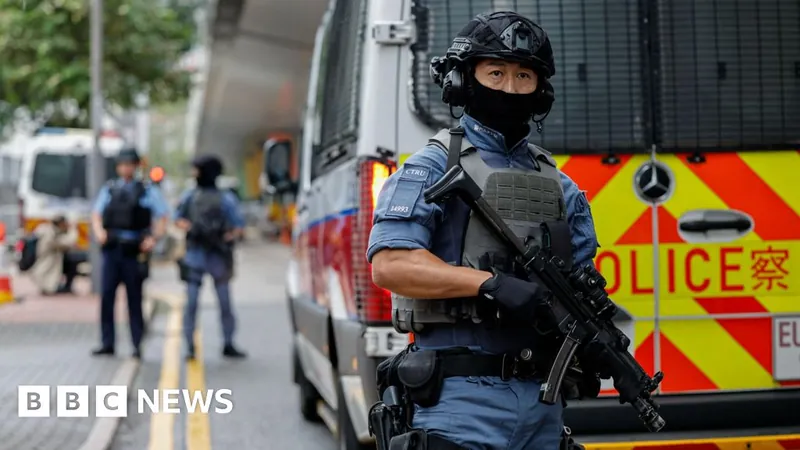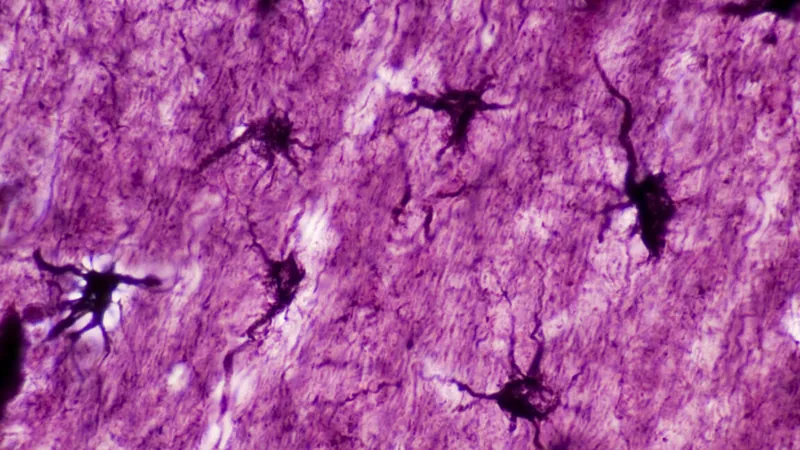
Political Crackdown: 45 Pro-Democracy Leaders Sentenced in Hong Kong
2024-11-19
Author: Chun
Political Crackdown: 45 Pro-Democracy Leaders Sentenced in Hong Kong
In a dramatic turn for Hong Kong's pro-democracy movement, a court has sentenced 45 activists and political leaders to significant prison terms under the controversial national security law (NSL). This judgment follows a closely watched trial that has drawn international condemnation and concern over the state of democracy in the city.
Among the most prominent figures sentenced were Benny Tai, 60, who received a 10-year sentence, and the youthful activist Joshua Wong, 28, sentenced to over four years. These individuals were part of the so-called "Hong Kong 47," a group charged with conspiring to commit subversion through their efforts to organize an unofficial primary election aimed at selecting opposition candidates for local legislative elections.
The NSL was established in mid-2020, taking root soon after massive protests erupted in 2019 against Beijing's increasing control over the city. These protests were initially sparked by a proposed extradition bill but quickly expanded to a broad call for democratic reforms and greater freedom. The NSL has since been used by authorities to quash dissent and limit the freedoms guaranteed under Hong Kong's Basic Law.
The ruling marks the most substantial legal action under the NSL to date and is viewed as a concerted strike against the city's pro-democracy movement, which has been significantly weakened since the imposition of the national security framework. Proponents of the law, including officials in Beijing and Hong Kong, argue that it is essential for maintaining stability and national security, dismissing critiques as foreign interference.
In response to the lengthy sentences, former Democratic Party chair Emily Lau expressed her anguish, calling the news devastating not just for the activists but for their families as well. The courtroom was filled with supporters, many of whom waited in line for days to witness the proceedings, highlighting the deep public interest and sentiment surrounding the case.
Activists and former lawmakers, such as Claudia Mo and Leung Kwok-hung (known as Long Hair), were notable attendees as well. Many of them have faced legal battles and imprisonment since their arrests. Eyewitness accounts described an emotional atmosphere inside the courtroom, as family and friends exchanged tearful glances with the defendants.
Wong, despite being a well-known figure in the pro-democracy movement, faced criticism during sentencing, with judges asserting that he did not demonstrate "good character" despite pleading guilty, which resulted in a sentence reduction. Before leaving the dock, he made a passionate declaration of his love for Hong Kong, a sentiment that resonated with many supporters present.
International responses to the sentences have been fierce. The UK government condemned the ruling, asserting that the activists were merely exercising their rights to freedom of expression and political participation. The US has criticized the trial as politically charged, while Australia has expressed strong objections to the use of the NSL against its citizens.
The significance of this case extends beyond legal implications; it reflects a broader trend of diminishing freedoms in Hong Kong. Critics argue this trial serves as a sobering reminder that the city is increasingly moving away from its reputation as a vibrant democratic hub. Observers like John P Burns, a professor at the University of Hong Kong, emphasize that this case underscores the urgency for international stakeholders to reassess their approaches regarding Hong Kong within the context of human rights and governance.
As the city grapples with this latest chapter of its political saga, many fear that the vibrant protests of yesteryears have been replaced by an unsettling silence—a silence that speaks volumes about the current state of democracy in Hong Kong. Only time will reveal the true impact of these sentences on the movement for political reform in this once-thriving bastion of freedom.




 Brasil (PT)
Brasil (PT)
 Canada (EN)
Canada (EN)
 Chile (ES)
Chile (ES)
 España (ES)
España (ES)
 France (FR)
France (FR)
 Hong Kong (EN)
Hong Kong (EN)
 Italia (IT)
Italia (IT)
 日本 (JA)
日本 (JA)
 Magyarország (HU)
Magyarország (HU)
 Norge (NO)
Norge (NO)
 Polska (PL)
Polska (PL)
 Schweiz (DE)
Schweiz (DE)
 Singapore (EN)
Singapore (EN)
 Sverige (SV)
Sverige (SV)
 Suomi (FI)
Suomi (FI)
 Türkiye (TR)
Türkiye (TR)